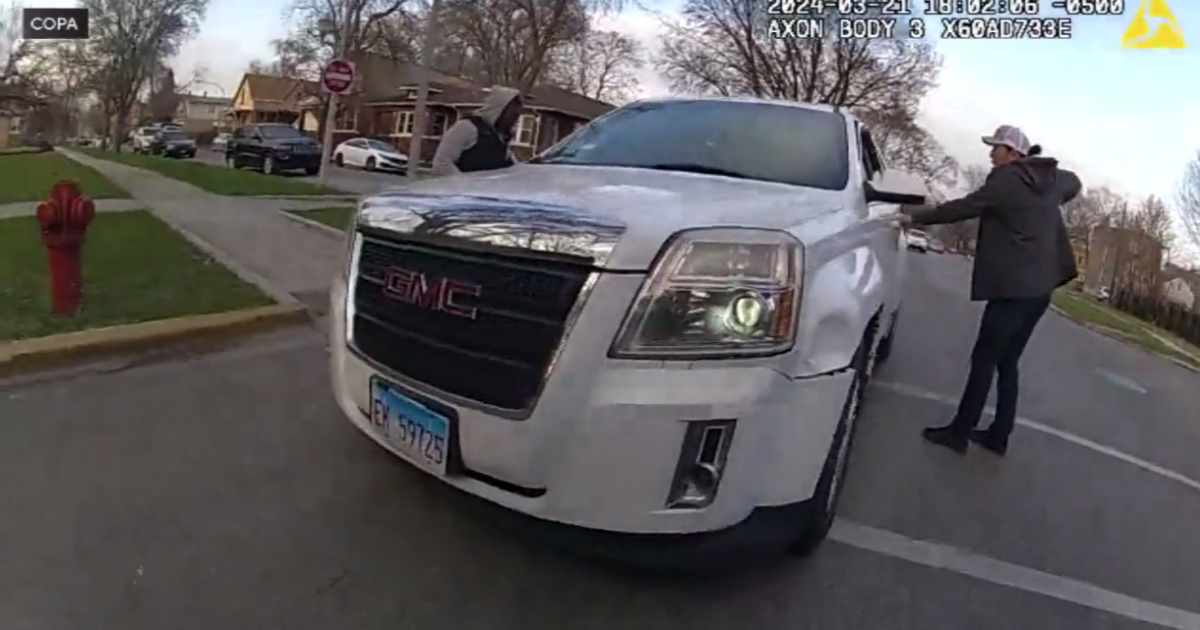Watchdog Report Says CPD Has Taken Few Steps To Fix Problems With Records Management In Court Cases
by Todd Feurer, CBS Chicago web producer
CHICAGO (CBS) -- A year after recommending sweeping changes to the Chicago Police Department's records management system in court cases, the city's top watchdog said Thursday that CPD has taken "almost no corrective actions," and is still at "very serious risk" of having criminal convictions thrown out, or facing significant liability in civil cases.
In June 2020, the Chicago Inspector General's office found judges, prosecutors, defense attorneys, and civil rights attorneys have found CPD's records management system to be ineffective, resulting in serious lags in obtaining relevant documents in criminal and civil cases involving the department.
A recent follow-up report found, while the department has developed better search functions in its Citizen and Law Enforcement Analysis and Reporting (CLEAR) system, and has converted some paper files to digital formats, "CPD has yet to implement most of the improvements to which it committed."
"Over a year ago, we noted that CPD's failure to identify and produce records in its possession put due process and the fairness of criminal and civil litigation at stake, and that the potential consequences of this failure were tremendous for litigants and for the City," said Deputy Inspector General for Public Safety Deborah Witzburg. "We find now that very little has been done to improve the circumstances which led to those conclusions."
READ THE FOLLOW-UP REPORT BELOW:
[scribd id=525677359 key=key-UeKTnyxOlDABJ39w5zp4 mode=scroll]
According to the follow-up report, CPD has not yet conducted a comprehensive staffing and resource analysis, developed standard operating procedures for document management and production, or developed necessary training for handling records.
"While CPD has made some adjustments, it remains unable to ensure that it is identifying and producing all relevant records in its possession when obligated to do so. In the interests of meeting its legal and constitutional mandates, minimizing risk to the City, and improving public trust and confidence in the transparency and competence of the Department, OIG urges CPD to meet its commitments to improvement," Witzburg said.
According to last year's report, those requesting records from CPD noted it often takes multiple requests to various units and officers to obtain the proper documents. In some cases, it took the department months to provide requested records, and in other cases it could take years.
READ THE ORIGINAL REPORT BELOW
[scribd id=465139894 key=key-oYBQ0mEGbOyGxFEJboDz mode=scroll]
The IG's office found the department's Subpoena Unit and Legal Affairs Office can't even determine what records exist in a given case, "making it impossible to know whether all relevant documents have been identified and produced."
According to the report, a review of the Subpoena Unit's database last summer found 74% of the more than 15,000 subpoenas tracked between June and August were not forwarded to other CPD units to locate the necessary records.
The report recommended CPD create a single unit to oversee records management for the entire department, tasked with establishing guidelines for how officers should maintain and file records to ensure consistent procedures.
The inspector general's office also recommended CPD establish consistent procedures to identify and produce both paper and electronic records, and establish a comprehensive records tracking system.
A follow-up report determined those changes have yet to happen.
The Inspector General's office said that failure leaves the city and CPD at "very serious risk" in both criminal and civil cases.
"In criminal litigation, CPD's failure to identify and produce records and information in its possession might undermine criminal prosecutions or lead to vacated convictions. In civil litigation, the same failures may result in significant legal and financial liability," the follow-up report stated. "Unless and until CPD improves its processes around records management and production, it will continue to be plagued by the risks identified there."
Chicago Police Department spokesman Tom Ahern said CPD "continues to work towards implementation of some of the OIG's original recommendations."
According to Ahern, CPD has moved to process subpoenas through technology firm GovQA, implemented a search function in CLEAR, and is converting old paper files to electronic records, while still keeping the original files.
"The Department will continue to report to the OIG additional implementations of those recommendations the Department accepted. The Department will continue to work with its stakeholders to ensure records are fully produced," Ahern said in an email.



